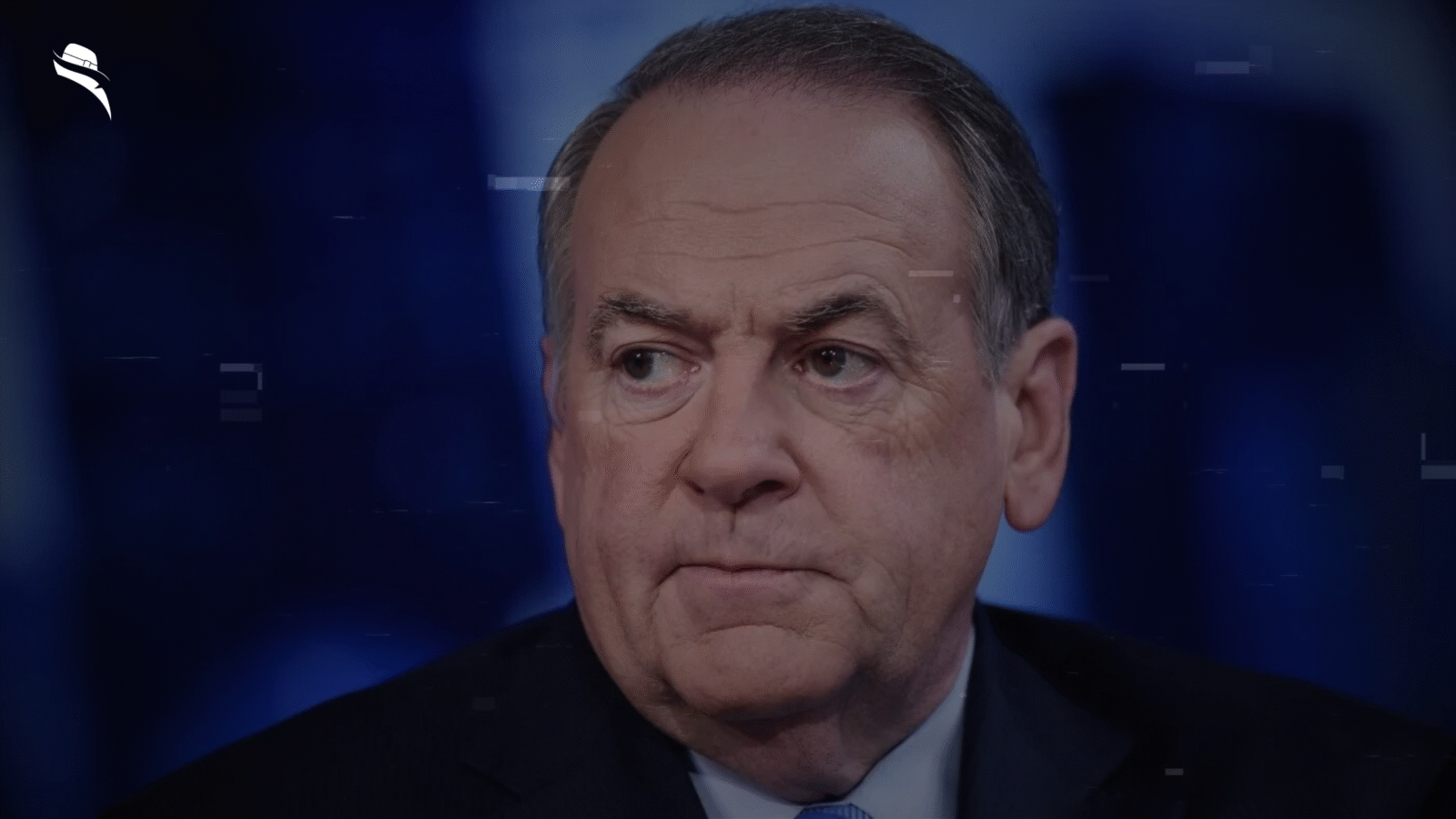Mike Huckabee stance on Israel has generated significant debate following his controversial confirmation as ambassador by a vote of 53-46, with only one Democrat supporting his appointment. His diplomatic role comes at a critical time when more than 60,000 people have been killed in Gaza since the start of the war, according to local health officials, while the Hamas-led attack on Israel on October 7, 2023, resulted in nearly 1,200 deaths and approximately 250 hostages.
Despite his new diplomatic position, Huckabee has openly rejected the two-state solution that has long been the cornerstone of U.S. Middle East policy. His controversial statements, including claims that “there’s really no such thing as a Palestinian”, have raised concerns about his approach to the ongoing conflict. Furthermore, his war policy perspective is clear when he states, “I’m not in the position to tell the Israelis how to conduct their war”, suggesting a hands-off approach to Israel’s military operations.
In this article, we’ll examine the complex dimensions of Huckabee’s relationship with Israel, his religious motivations, and his political alignments. We’ll certainly explore his controversial positions on Palestinian statehood, his support for West Bank annexation, and the international reactions to his diplomatic role. Additionally, we’ll investigate how his stance might impact future peace initiatives in one of the world’s most volatile regions.
Huckabee’s Religious Roots and Connection to Israel
Huckabee’s passionate connection to Israel stems from deeply personal religious experiences that began decades before his political career. As a Baptist minister, his first pilgrimage to the Holy Land marked a profound spiritual awakening that would later influence his political ideology. I’ve visited Israel more than 40 times, leading thousands of pilgrims through biblical sites that deepened my understanding of scripture and Jewish history.
Early visits and spiritual awakening
My first journey to Israel wasn’t merely tourism—it was a transformative spiritual experience. Walking the ancient streets of Jerusalem and standing at the Western Wall created an unbreakable bond with what I consider sacred ground. Notably, these early visits shaped my worldview far beyond typical religious tourism. The physical connection to biblical locations reinforced my belief that modern Israel fulfills divine promises, making my support for the Jewish state both spiritual and personal.
Evangelical beliefs shaping foreign policy
As an evangelical Christian, my foreign policy views on Israel reflect theological convictions rather than merely political calculations. In particular, my stance on Israel stems from the biblical covenant I believe God made with Abraham and his descendants. Given that evangelicals view Israel as divinely established, this religious perspective naturally translates into political support for Israeli sovereignty and security. Moreover, these theological underpinnings explain why my positions often align with Israel’s right-wing political factions rather than with conventional diplomatic approaches.
Biblical prophecy and support for Israel
Biblical prophecy plays a crucial role in my unwavering support for Israel. Specifically, many evangelicals like myself interpret scripture as foretelling the Jewish return to their homeland as a prerequisite for End Times events. This prophetic framework shapes my conviction that supporting Israel fulfills a divine mandate. Consequently, I view modern political boundaries through a biblical lens, considering Israel’s existence and expansion as fulfillment of ancient promises rather than matters for international negotiation. This prophetic perspective explains the theological roots behind my controversial policy positions regarding Palestinian statehood and territorial claims.
Mike Huckabee Stance on Israel & Policy Positions on the Israeli-Palestinian Conflict
Unlike many career diplomats, Huckabee’s stance on the Israeli-Palestinian conflict rejects decades of established U.S. foreign policy. Throughout his career, he has maintained an unwavering opposition to the two-state solution that has been the cornerstone of Middle East diplomacy.
Rejection of the two-state solution
Huckabee has consistently opposed the two-state solution, describing it as “irrational and unworkable”. In recent statements, he suggested that Palestinians could establish a state in neighboring countries rather than within Israel’s borders. He even proposed that “Muslim countries have 644 times the amount of land that is controlled by Israel” and could potentially host a Palestinian state.
Support for West Bank annexation
Regarding territorial claims, Huckabee has openly endorsed Israel’s right to annex the West Bank. He frequently uses biblical terminology, referring to the area as “Judea and Samaria” rather than the West Bank. In an interview with Army Radio, he stated that annexation was “of course” a possibility during Trump’s second term. His perspective dismisses international concerns, asserting, “There is no such thing as an occupation”.
Statements on Palestinian identity
Perhaps most controversially, Huckabee has questioned Palestinian identity itself. During his 2008 presidential campaign, he stated, “There’s really no such thing as a Palestinian“. He later elaborated that Palestinian identity was “a political tool to try and force land away from Israel”.
Comparison to WWII and historical justifications
In defending Israel’s military operations, Huckabee frequently invokes World War II comparisons. He criticized European nations for “disgusting hypocrisy” in questioning Israel’s tactics while accepting Allied bombing of German cities during WWII. He argued that European leaders who criticize Israel “forget their own history”.
Mike Huckabee AIPAC Ties and Political Alliances
The political infrastructure supporting Huckabee’s pro-Israel stance extends beyond his religious convictions into strategic alliances with powerful lobbying groups and political partners.
Relationship with AIPAC and pro-Israel lobbies
Throughout my political career, I’ve maintained close ties with the American Israel Public Affairs Committee (AIPAC), regularly speaking at their policy conferences and fundraising events. Indeed, my relationship with AIPAC has been mutually beneficial—they’ve provided significant financial support for my presidential campaigns while I’ve consistently advocated for their policy positions. Beyond AIPAC, I’ve cultivated relationships with other pro-Israel organizations such as Christians United for Israel and the Republican Jewish Coalition, which have helped shape my understanding of Israeli security concerns.
Alignment with Trump administration policies
My approach to Israel policy harmonizes with the Trump administration’s dramatic shift in American-Israeli relations. Essentially, I strongly endorsed Trump’s controversial decision to relocate the U.S. embassy to Jerusalem, calling it “the most courageous political move I’ve seen in my lifetime.” Subsequently, I voiced enthusiastic support for the administration’s recognition of Israeli sovereignty over the Golan Heights and the Abraham Accords. Hence, my appointment as ambassador reflects the continuation of Trump’s approach to Middle East diplomacy.
Support from Israeli settler groups
I’ve developed strong bonds with leaders of the Israeli settlement movement, visiting settlements in the West Bank numerous times. Ultimately, these relationships have reinforced my belief that settlements are both legal and legitimate. Prominent settler organizations have hosted my tours and publicly praised my uncompromising stance on territorial issues.
Controversies and Global Reactions
Huckabee’s controversial remarks on the Israeli-Palestinian conflict have ignited a firestorm of international criticism, challenging his diplomatic credibility and complicating U.S. foreign relations.
Criticism from European and Arab leaders
European nations have firmly rejected Huckabee’s dismissal of Palestinian statehood. The United Kingdom, France, and Canada issued a joint statement describing Israel’s actions in Gaza as “wholly disproportionate” and “egregious”. After Huckabee’s comments against Palestinian statehood, British Foreign Secretary David Lammy announced sanctions against far-right Israeli ministers. In response, Huckabee called these decisions “very foolish” and “shocking”, claiming they undermined peace efforts.
Sanctions on Palestinian organizations
Simultaneously, the U.S. imposed sanctions on Palestinian human rights organization Addameer and five charity groups, claiming they support militant groups. This occurred hours after Huckabee’s rejection of Palestinian statehood. The Treasury Department also sanctioned Palestinian Authority officials and PLO members, preventing them from receiving U.S. visas.
Concerns over the peace process and the Abraham Accords
Analysts warn that Huckabee’s stance jeopardizes the Abraham Accords. Saudi Arabia has clearly stated normalization is “off the table” without Palestinian statehood. His support for West Bank annexation directly contradicts the foundation of these agreements, as the UAE’s normalization hinged on Israel’s pledge to forgo annexation.
Media backlash and human rights concerns
Human Rights Watch accused Israel of using “starvation of civilians as a weapon of war”, while the UN Secretary General termed the Gaza situation “a moral crisis challenging global conscience”. Huckabee retaliated by accusing major American media outlets of spreading “Hamas-sourced narratives”.
Statements seen as inflammatory or dismissive
Huckabee’s most controversial statement suggested Muslim countries should create a Palestinian state because they “have 644 times the amount of land” than Israel. He also told European critics to “take 10th grade civics and refresh themselves”, calling their concerns “disgustingly hypocritical”.
Curious about where other U.S. representatives stand on the Israel-Palestine conflict? Explore more profiles here.
Final Thoughts
In the light of Huckabee’s controversial nomination, his confirmation vote split almost entirely along party lines, with only Senator John Fetterman of Pennsylvania breaking Democratic ranks to support him. His appointment has sparked intense division within the American Jewish community, with organizations such as the National Council of Jewish Women expressing “strong concern” about his suitability for the role.
“Huckabee’s positions are not the words of a thoughtful diplomat — they are the words of a provocateur,” stated Rep. Jerry Nadler, highlighting the unprecedented nature of his views. J Street president Jeremy Ben-Ami concluded that Huckabee’s embrace of “extremist settlers and fanatical Christian Zionism” contradicts both Jewish democratic values and “Israel’s founding values”.
Nevertheless, Huckabee remains unfazed by criticism, telling The New York Times that he sees his role as an opportunity to “serve my country, and even serve my faith.” Supporters value his decades-long relationship with Israel, having “brought busloads of evangelicals” there twice yearly.
Ultimately, critics argue Huckabee’s approach threatens America’s credibility as a neutral mediator. As Georgetown University scholar Khaled Elgindy noted, the administration appears “committed to Palestinian erasure, both physical and political”. Therefore, as hostages remain in captivity and humanitarian conditions deteriorate, Huckabee’s appointment represents a significant departure from traditional American diplomatic approaches to one of the world’s most volatile regions.
FAQs
1. What is Mike Huckabee’s official role regarding Israel?
Mike Huckabee was confirmed as the U.S. ambassador by a 53-46 vote, making him a key diplomatic figure during the ongoing Israel-Gaza conflict. His position gives him significant influence over U.S. policy in the region.
2. Does Mike Huckabee support a two-state solution for Israel and Palestine?
No, Huckabee rejects the two-state solution and has stated that Palestinians should seek statehood in other Muslim-majority countries, a position that diverges from long-standing U.S. foreign policy.
3. Why is Huckabee’s view on Palestinian identity controversial?
Huckabee has previously claimed “there’s really no such thing as a Palestinian,” a statement widely criticized for denying the identity and rights of millions of people.
4. How does religion influence Mike Huckabee’s stance on Israel?
As an evangelical Christian, Huckabee believes Israel’s existence and territorial claims are biblically mandated. He views his support for Israel as a spiritual and prophetic obligation.
5. Has Huckabee visited Israeli settlements in the West Bank?
Yes, Huckabee has visited settlements numerous times and openly supports Israel’s annexation of the West Bank, calling it “Judea and Samaria” in line with right-wing Israeli narratives.
6. How has the international community responded to Huckabee’s positions?
Many European and Arab leaders have condemned Huckabee’s dismissal of Palestinian statehood, warning that it jeopardizes peace efforts and contradicts international law.
7. What is Huckabee’s relationship with AIPAC and pro-Israel lobbies?
Huckabee has close ties with AIPAC and groups like Christians United for Israel. These alliances have supported his political campaigns and helped shape his pro-Israel policies.
8. Does Mike Huckabee’s stance align with the Trump administration?
Yes. Huckabee strongly supported Trump-era policies like moving the U.S. embassy to Jerusalem, recognizing Israeli sovereignty over the Golan Heights, and signing the Abraham Accords.
9. Why is Huckabee’s appointment considered controversial?
His rejection of Palestinian statehood, religiously motivated foreign policy, and inflammatory comments have led critics to question his suitability for diplomacy in a conflict zone.
10. How might Huckabee’s views affect the Abraham Accords?
His support for West Bank annexation threatens the future of the Abraham Accords, as key Arab countries like Saudi Arabia require progress on Palestinian statehood before normalization.






Leave a Reply